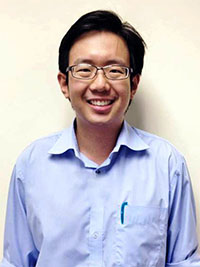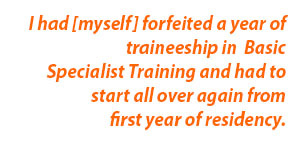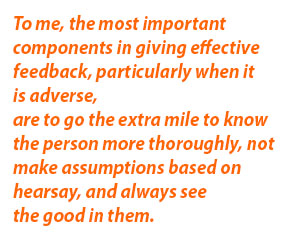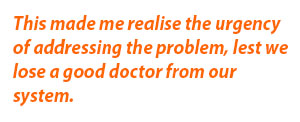Started in January 2017, the SingHealth Residency Leadership Programme (SRLP) leverages on a national-level programme by having chief residents build up a pool of leaders among residents in SingHealth.
Started in January 2017, the SingHealth Residency Leadership Programme (SRLP) leverages on a national-level programme by having chief residents build up a pool of leaders among residents in SingHealth.

Dr James Li (Above), Senior Resident in Gastroenterology and Singapore Chief Residency Programme alumnus, is a mentor in SRLP. Here he shares an unforgettable moment in teaching and the lessons learnt from his mentee…
I have had the privilege of working with many Residents, Medical Officers (MO) and House Officers (HO).
During one of my postings as Senior Resident in Gastroenterology and Hepatology, I had to give adverse feedback to an MO – an experience which had a profound impact on how I view teaching in a clinical setting.
The MO was reliable and hardworking, but could not seem to get along with the rest of the team or other Senior Residents (SR). He would often get worked up when others could not keep up with him, and criticised colleagues – often during rounds – for their treatment plans if he thought that it was not up to standard. To an SR who failed to earn his respect or was perceived to be less knowledgeable than he was, he would at times come across as disrespectful.
Unfortunately for the MO, the more he criticised others, the more isolated he became. This was a vicious cycle, as his isolation made him more frustrated and even more critical of others. This made post-rounds breakfast very awkward indeed!
###

To me, the most important components in giving effective feedback, particularly when it is adverse, are to go the extra mile to know the person more thoroughly, not make assumptions based on hearsay, and always see the good in them. It also needs to be clear that the feedback is for their benefit and in their best interests.
So I sought to understand the MO's background and learnt that his outbursts carried no malice, nor were they rooted in pride. They stemmed from his frustration of not being able to get into a residency training programme despite working hard and often staying back late.
He was feeling hopeless, and the helplessness at his situation translated into his actions for which others had come to see him as abrasive.
This made me realise the urgency of addressing the problem, lest we lose a good doctor from our system. It was clear to me that the purpose of my feedback would not be to improve team dynamics or make rounds more pleasant for the rest of the team, but to give this MO a sense of hope. This subtle difference had a huge impact on how I approached him.
###

During breakfast, I regularly teach on topics related to the patients we see. I directed the more difficult questions to the MO, knowing that only he would know the answers. I would then praise him for his response, and use the opportunity to share my own Residency journey: I had forfeited a year of traineeship in Basic Specialist Training and had to start all over again from first year of residency when the residency system first came into place.
I did this light-heartedly, joking about being an "old man" in the system. This opened up channels of communication with him and built trust.
One day, when I was alone with the MO, I asked him to sit down for a chat.
Instead of the usual feedback session of starting and ending with positive remarks and keeping the negative feedback in the middle (anyone ordered a sandwich?), I pointed out directly to the MO that he came across as abrasive and critical to his colleagues. By this time, I had come to know the MO's personality and knew that he would respond better to me being direct. I also assured the MO that I found him to be an excellent worker, and listed reasons why I thought so.
A strange twist had happened. He said that he was aware of the problem, and had been trying to change. He told me that he had learnt by observing me.
To my surprise, a strange twist had happened. He said that he was aware of the problem, and had been trying to change. He told me that he had learnt by observing me: How I would correct a colleague or change his or her management without criticising or being aggressive, and would help others without question or complaint even when it was not required of me.
In the end, I hardly did any talking during the feedback session except point out what the MO could improve on! I wrapped the session up with an action plan, telling him that I understood the reasons for his behaviour, and that I would support his bid for Residency because I sincerely felt that he was a good doctor and very responsible. In return, the MO would have to work on being less abrasive and that as a senior MO, he had to take shared responsibility of keeping up the team's morale.
The following weeks became the most fulfilling ones during the posting. The team worked well together and was very efficient, much to the envy of the other teams in the department!
###

The talk I had with the MO had a profound impact on how I give feedback now: with a purpose to guide and not to reprimand. It also made me realise that teaching opportunities do not lie only in formal tutorials or feedback sessions, but in my everyday practice of Medicine and in my own conduct when I lead my team.
Indeed, I have come to learn that the lesson has long been taught before the student enters the classroom, and perhaps in the context of Medicine, the teacher brings the proverbial classroom with him everywhere he goes.
